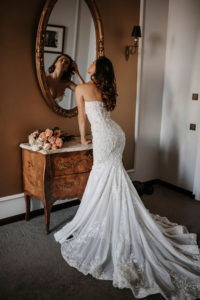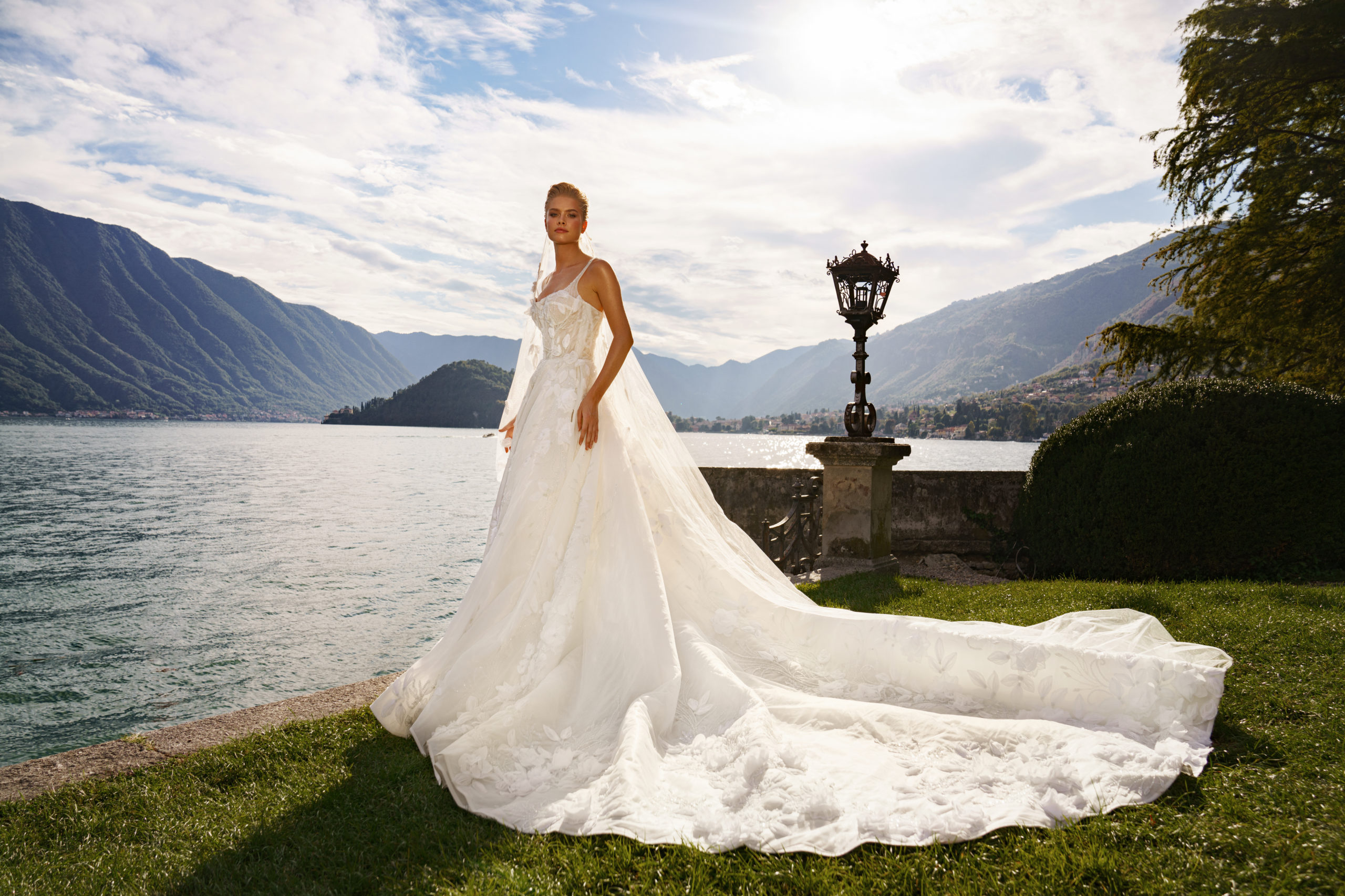Wedding budgeting is changing, and nowadays, many people have to pay for their weddings. However, a certain contribution level is still expected from the bride or groom’s parents.
In today’s world, there are so many changes from traditional wedding etiquette. What used to be expected and accepted is not necessarily the case anymore. It’s not unusual for people to use their savings rather than their parents’ money to pay for a wedding.
Creating a wedding budget is a very time-consuming task, but early planning can help. It’s essential to have financial conversations at the same time as setting your guest list. If you wish to pay for your wedding, you may want to start looking for wedding budget tips. Knowing the number of guests you will invite, the wedding style, the food, and other details are essential to your budget planning. And knowing who is paying for what will give you an understanding of where you can splurge—and where you may need to cut back.
Read more about who traditionally pays for what in a wedding budget.
Who Pays at a Modern Wedding?
 With the cost of weddings rising, many couples are changing how they pay for their weddings. Modern weddings often see the betrothed paying for their own wedding, but many still have some costs covered by the family.
With the cost of weddings rising, many couples are changing how they pay for their weddings. Modern weddings often see the betrothed paying for their own wedding, but many still have some costs covered by the family.
According to one report, most couples today still get help from their parents when paying for the wedding. The same report found that for couples in a heterosexual relationship, the parent of whoever self-identifies as the bride contributes the most money.
The report also found that most of the wedding expenses are still paid by parents, at just over half the cost. The married couple’s age also plays a factor in divvying the wedding budget. Millennial couples spend less on their weddings than older generations. They are also more likely to get serious help from their parents.
The ‘who pays for what’ breakdown is different for LGBTQIA+ couples. They pay 61% of the expenses, while their parents pay 37%.
Couples having their second wedding may pay for the entire thing themselves, which includes 88% of the expenses and parents helping with 10%.
Typically, when a bride and groom can afford to pay for their own wedding, they will. The person who pays for the wedding is often viewed as having a say in many aspects of the wedding. Your parents should have a say in the guest list, the wedding reception venue, and the vendors. Generally, the parents of the bride and groom, who typically foot the bill for the majority of wedding expenses, are listed as hosts on wedding invitations.
Who Pays for What in a Traditional Wedding Budget
Traditionally, the bride’s family pays for the wedding. However, even with the bride’s family paying for most of the day, you might be surprised to find that not all the costs are covered by them. The bride’s family typically pays for the wedding venue and vendors, but there is still plenty more to cover in a wedding budget.
Here is a detailed breakdown of who pays what in a traditional wedding budget:
Parents of the Bride
Even though this rarely applies in modern times, it’s interesting to note how much a bride’s family is traditionally expected to spend on your wedding day. Some you probably know, but some may surprise you:
- Invitations and stationery
- Accommodations for bridesmaids
- The wedding dress
- Accessories
- Hair
- Makeup
- Wedding planner
- Photographer
- Transportation
- Wedding Decor
- Flowers
- Post-wedding luncheon or brunch
- Wedding cake
- Bachelorette party
- Ceremony
- Reception
Parents of the Groom
 Traditionally, the groom’s parents are expected to provide the following:
Traditionally, the groom’s parents are expected to provide the following:
- Marriage license
- Officiant fee
- Rehearsal dinner (venue, food, drink, decorations, and entertainment)
- Accommodations/transportation of the groom and the groomsmen
The groom or his family traditionally organized the honeymoon.
Bride
Traditionally, the bride has been responsible for paying for the groom’s wedding-related items. This includes their wedding ring, plus presents for their bridesmaids.
Groom
Historically, the groom would be in charge of buying the bride’s engagement ring and wedding band; however, this dynamic is changing nowadays. The groom also usually pays for his wedding attire (whether he buys or rents), but it’s not unusual for the groom’s family to help. It is typical for the groom to buy gifts for his groomsmen and the bride.
Wedding Party
 Typically, the bridal attendants will be responsible for the cost of their shoes and accessories, as well as covering the bride’s cost for the bachelorette party. If necessary, the bridesmaids may also wish to pay for a bridal shower gift, wedding gifts, and accommodations. Depending on the bride’s budget, the wedding party may also be responsible for paying for their own hair and makeup.
Typically, the bridal attendants will be responsible for the cost of their shoes and accessories, as well as covering the bride’s cost for the bachelorette party. If necessary, the bridesmaids may also wish to pay for a bridal shower gift, wedding gifts, and accommodations. Depending on the bride’s budget, the wedding party may also be responsible for paying for their own hair and makeup.
The groom’s wedding party often pays for their attire, bachelor party, and wedding accommodations.
Parents of the Flower Girl/Ring Bearer
Traditionally, the flower girl and ring bearer’s attire has been paid for by the bride’s parents. In other cases, the family may be asked to provide a specific dress, hosiery, shoes, or accessories.
Wedding Budget Tips
One of the main steps to ensure your wedding stays within budget is creating the budget first. If you need help finding ways to shrink costs, no matter who is paying, here are some helpful wedding budget tips:
Marry in the Off Season
Depending upon your location, the wedding off-season is a great time to plan your nuptials and is just as romantic and fun as any other time of the year. However, by moving your wedding from October to November, for example, you may be able to knock a few dollars off of many important aspects. Most vendors and venues are not as busy during the off-season and will welcome the business by offering a discount. Don’t forget to ask!
Consider an Earlier Wedding
More and more couples opt for an afternoon wedding or a brunch reception. By choosing to celebrate your wedding earlier in the day, your venue and ceremony location may be able to fit another event and may reward you with a discount. Another cost-saving benefit of hosting an earlier wedding is that you will not have to pay for a formal, sit-down dinner.
Use One Venue
You can save some money by holding your entire wedding in one spot. Not only are you not required to pay for two venues, but using one venue for both your ceremony and reception is convenient for you and your guests.
Consider Non-Traditional Venues
Wedding venues often come with a hefty price tag. Choosing a non-traditional wedding venue for your ceremony or reception can be a way to keep your budget costs down. Try an outdoor locale, a cool lounge, or even your favorite restaurant.
Plan a Destination Wedding
Destination weddings can be a great way to save money. Unlike traditional weddings, the price is usually fixed, and that’s all you’ll need to pay.
Creatively Cut the Guest List
 It follows the logic that you’ll need a bigger budget if you have a more extensive guest list at your wedding. If you can cut your guest list, you can also cut your budget. A few things to consider:
It follows the logic that you’ll need a bigger budget if you have a more extensive guest list at your wedding. If you can cut your guest list, you can also cut your budget. A few things to consider:
- Keeping your wedding adults-only, as wedding venues often charge adult prices for kids’ meals.
- Omitting co-workers
- Strictly inviting close friends
Set Priorities
It’s much easier to stay within budget when you know exactly what needs to be included and what can be pared down. Write a list in order of priority and spend accordingly. You may wish to look to your “negotiables” and adjust the things that don’t require compromise or sacrifice.
If you’re worried about specific people or things, it’s wise to do what’s called ‘saving the non-negotiables.’ This means putting the specific person or item on the top of your list, ensuring they’re at least untouched.
Find a Couture Dress That Fits Your Budget No Matter Who Pays
No matter who is paying for your wedding, finding the perfect couture dress is crucial! Affordable and designer-inspired, Viero wedding dresses are sure to hit the mark. Are you ready to find your dream wedding gown?
Book an appointment with one of our wedding professionals or browse our collections.
